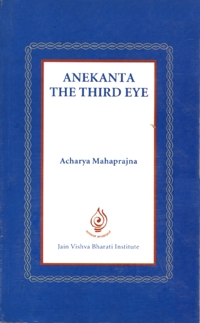
Many people blame circumstances and go scot-free. The Acharyas who have explained anekanta have presented a similar problem to us. They gave importance to both existence and non-existence. They said every substance has existence from its point in matter, place, time, and state. Similarly, they said, every substance is non-existent with respect to another matter, place, time, and state.
The essence of this is that with respect to oneself, there is existence and with respect to others) there is non-existence.
Here the view of spirituality has become slightly negligent. Why should non-existence be considered with respect to others? If we look at it from the perspective of relativity, then both existence and non-existence are of the self, of matter. It is not necessary that non-existence should always be with respect to others. Every object’s existence is on the basis of its manifested modes and its non-existence is on the basis of its unmanifested modes. Every substance's existence is on the basis of the modes that are manifest and its non-existence is with respect to the many possibilities.
Napoleon Bonaparte used to say that the word impossible did not exist in his vocabulary. If this is looked at as arrogance then indeed he is very arrogant. But if it is looked as a principle, then what a lofty principle!
The man who follows anekanta does not consider anything impossible. People say that it is impossible to stabilize the mind. This is a mistaken thought. With continued meditational practice, the concept of the mind is demolished.
Mercury is very unstable, but it has been made possible to stabilize it too by binding it into the shape of a ball.
People say water cannot be retained in a sieve. Now even that is not impossible. Freeze the water into ice and it will not be able to pass through a sieve. It will rest.
If we hold on to something from a unilateral view, then we have problems. A sieve can or cannot hold water. The state has to change. With a change in state, the impossible becomes possible.
 Acharya Mahaprajna
Acharya Mahaprajna
